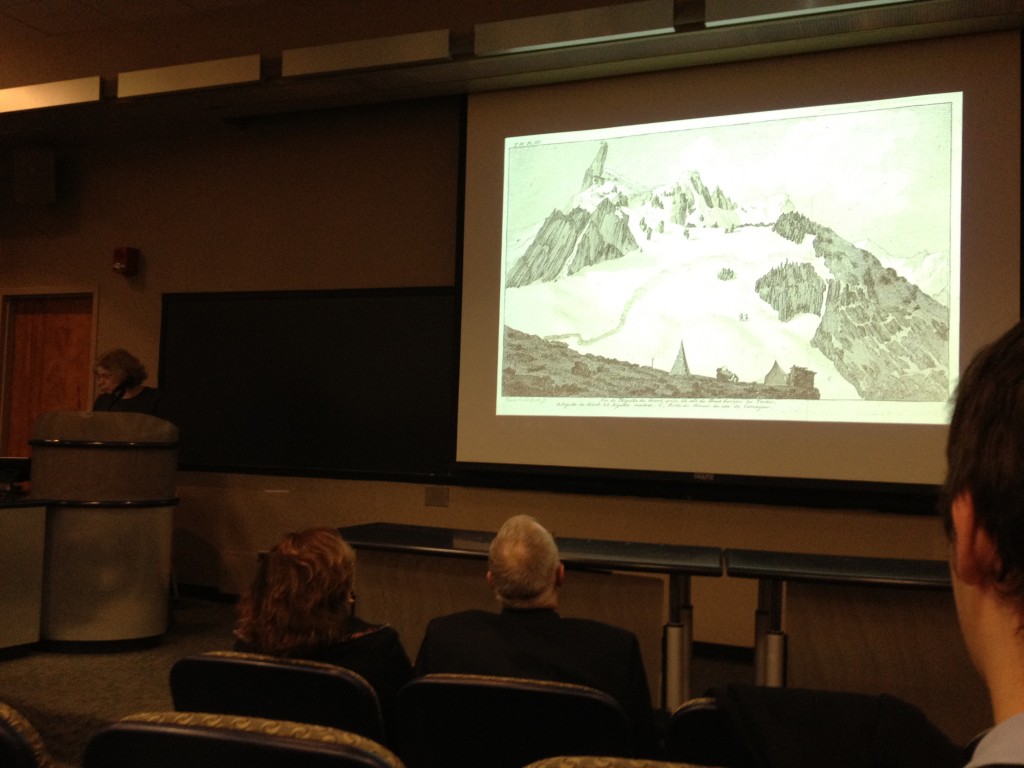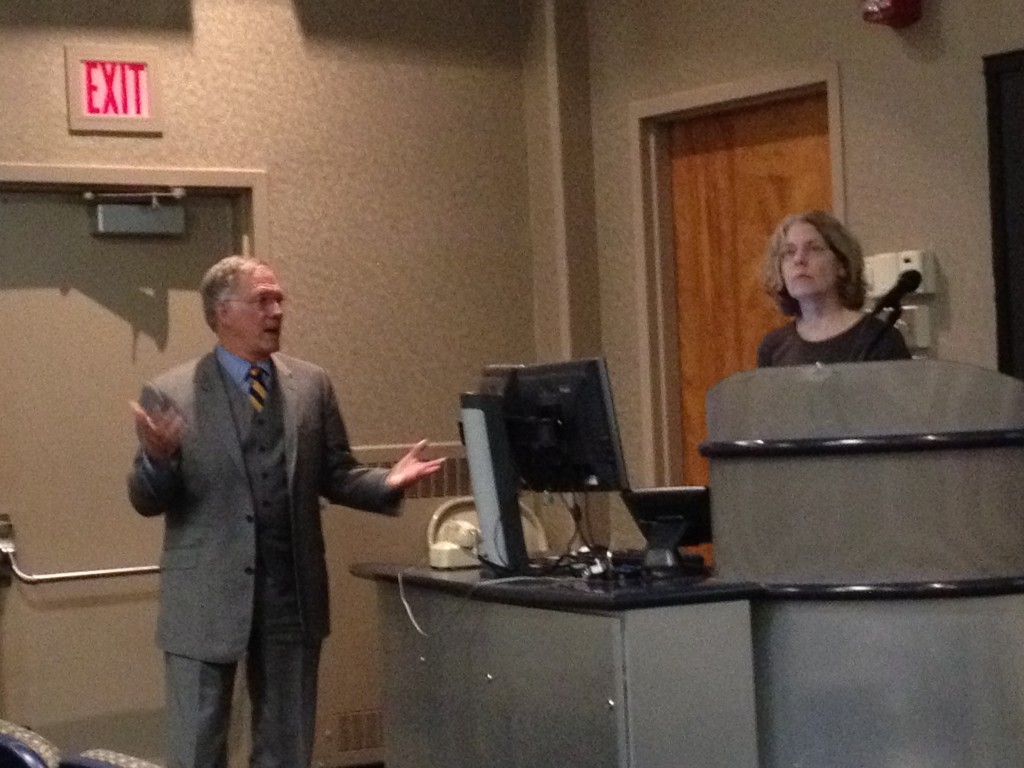By: Carolyn Taratko (History, Class of 2012)
On Tuesday, February 7th Professor Kathleen Kete gave the inaugural Borden W. Painter Jr. Lecture in the McCook auditorium. Professor Kete lectured on her current project, a history of the Alps in the French Revolution. Using Horace Benedict de Saussure’s Voyage dans les Alpes (held in our own Watkinson Library) as a guide, she interrogates the relationship between natural and civil history in the eighteenth century. Saussure, a Genevan aristocrat, was also a naturalist and a climber whose 1787 summit of Mont Blanc captured the nation’s attention. His extended forays into the Alps resulted in extensive observations on botany, geology and glaciers, but also nuanced descriptions of the mountains and the people who inhabited them. These two spheres of inquiry, the first scientific and the second picturesque, were published separately in post-Revolutionary France.

Seeking to “unite the patrician climber with the scientific man”, Professor Kete examined these two publications together, integrating human history with the history of the Earth. The new language of revolution that developed around the French Revolution was drawn from natural history. Terms such as “lightning rod”, “revolution”, and “volcano” were all used to describe the mounting tensions in the political arena. Among the advantages of viewing the text of Voyages dans les Alpes in its entirety is the opportunity to see how this link between nature and politics was forged in the mind of a prominent figure in both of these spheres.
Professor Kete also urged her audience to consider the importance of place in shaping history. Saussure used Geneva as a home base, but through his expeditions in the mountains he had occasion to pause for reflection on the concepts of homeland and self from the summit. The union of the pensive aristocrat and the adventurous mountain climber appears when Saussure reflects upon the breathtaking views of the landscape fanning out before him, forcing consideration of the role of man in nature.
The lecture was thought provoking and afterwards Professor Kete was peppered with questions from colleagues and students alike.
Home » European History » Borden W. Painter Jr Lecture: Prof. Kathleen Kete
